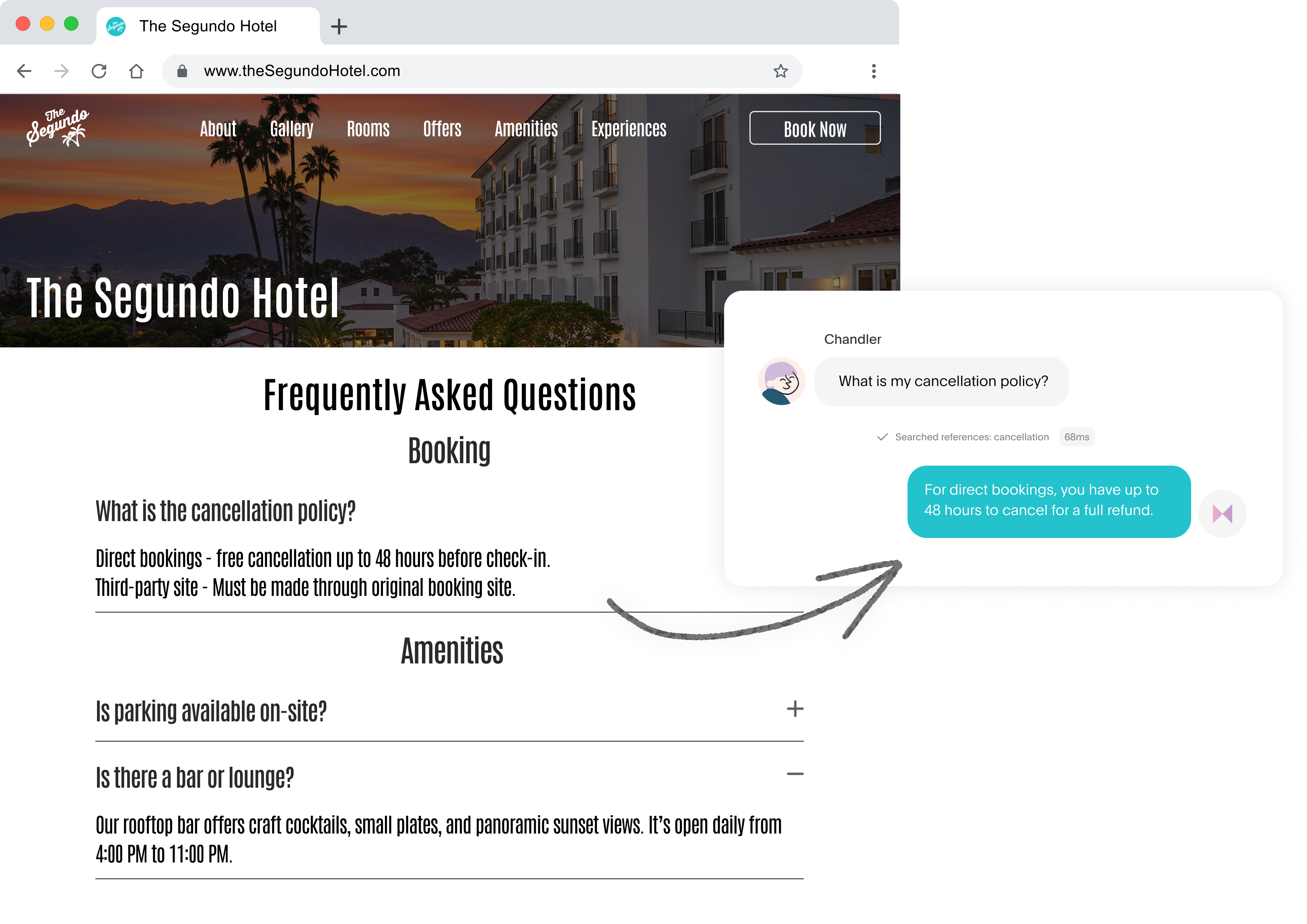Top Hospitality Challenges in 2025
How hotels and vacation rentals can come out on top in the age of skeptical guests and staff uncertainty.
From boutique hotels to vacation rentals, operators are grappling with shifts that are fundamentally changing how they run their businesses. McKinsey research predicts that by 2026, 95% of hospitality businesses will need to significantly transform their operating models to remain competitive. Artificial intelligence is changing how guests find and interact with properties, all while supply chain and operational costs continue to rise. However, with the right preparation, your property can still come out on top.
1. Overcoming Trust Fatigue Online
While online reviews and property photos have long been crucial for hospitality businesses, we're seeing an emerging "trust fatigue" among travelers. With the rise of AI-generated reviews and algorithm-first content, properties face the challenge of proving their authenticity in an increasingly skeptical market. Hotels and vacation rentals alike should aim to capture content from actual guests and encourage those guests to leave reviews in a way that’s simple and easy.
2. Walking the Technology Tightrope
Properties must walk an increasingly fine line between high-tech convenience and maintaining human connection. A Hospitality Technology study revealed that 73% of guests prefer using their mobile device for check-in, yet 67% still value face-to-face interactions with staff for local recommendations and problem-solving. While guests expect seamless digital check-in and smart room controls, they still crave authentic local experiences and personal touches. The most successful properties view technology as an extension of their staff – not a replacement.
3. Fighting Staff Turnover
Beyond simple staffing shortages, the industry faces a fundamental shift in workforce expectations. The U.S. Bureau of Labor Statistics reports that the hospitality sector's turnover rate remains at 73.8%, more than double the average across all private sectors. This challenges traditional job structures and forces managers to rethink their relationship with property maintenance teams and cleaning staff. The solution isn't simply higher wages, but a complete reimagining of hospitality careers. Successful properties are looking at how technology can complement jobs, reduce stress, and encourage tipping from guests.
4. Collecting Data Responsibly
While data allows for unprecedented personalization, properties should be wary of crossing the "creepy line" – the point where customization becomes intrusive. A Deloitte survey found that while 95% of hotels collect guest data for personalization, only 22% of guests feel comfortable with how their data is being used. The challenge lies in creating memorable, personalized experiences without crossing privacy boundaries. A centralized guest profile connected to your PMS ensures data privacy while still allowing access to this wealth of knowledge.
5. Rising Operational Costs
STR data shows that average daily rates for hotels fluctuated by up to 43% within the same market during peak versus off-peak seasons in 2024. Beyond seasonal variations, properties must now account for dynamic pricing influenced by local events, competitors and supply chain issues. Increase revenue by implementing an upsell strategy that automatically offers available rooms and amenities to guests.
6. Replacing Manual Processes
The hospitality industry remains surprisingly anchored to manual processes in an increasingly digital world. According to a PWC Digital IQ survey, hotels lose an average of $200,000 annually on manual data entry and redundant communications, with vacation rentals facing many of the same issues. Properties are combatting this by automating guest messaging, staff coordination, and even marketing using the power of AI.
Looking Forward
The future of hospitality lies not in solving these challenges individually, but in finding innovative ways to address their interconnected nature. Success will come to properties that can maintain authenticity while embracing technology, preserve personal touches while scaling operations, and meet guest expectations while managing costs.
Time is one the greatest asset and one of the things that [Akia] has helped us out as a property tremendously.
Thomas M.
Content Marketer
Time is one the greatest asset and one of the things that [Akia] has helped us out as a property tremendously.
Ethan Fishbane
Director of The Front Office, Prince Waikiki
Schedule of events and useful links
Never miss a beat with our comprehensive schedule of events and collection of useful links.

Schedule of events and useful links
Never miss a beat with our comprehensive schedule of events and collection of useful links.

See Akia in action!
Schedule a demo today and learn how our hospitality platform can transform your operations and elevate your guest experience.













